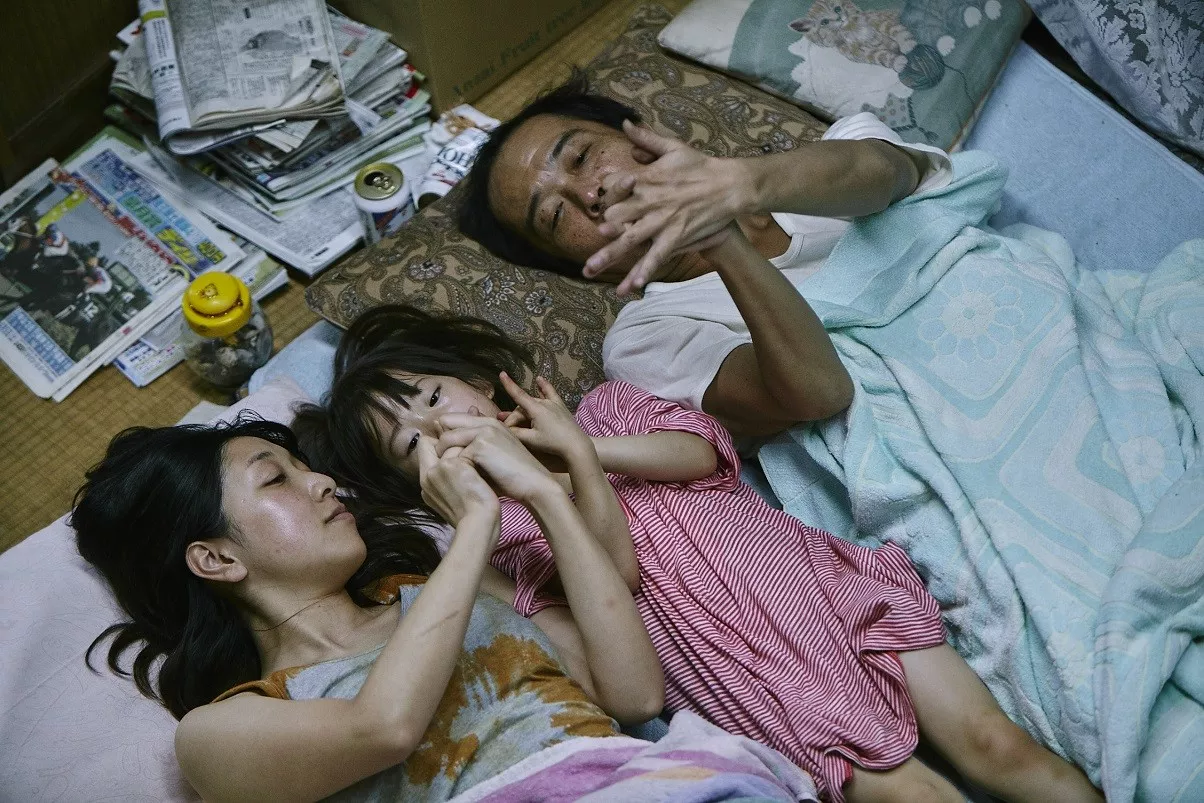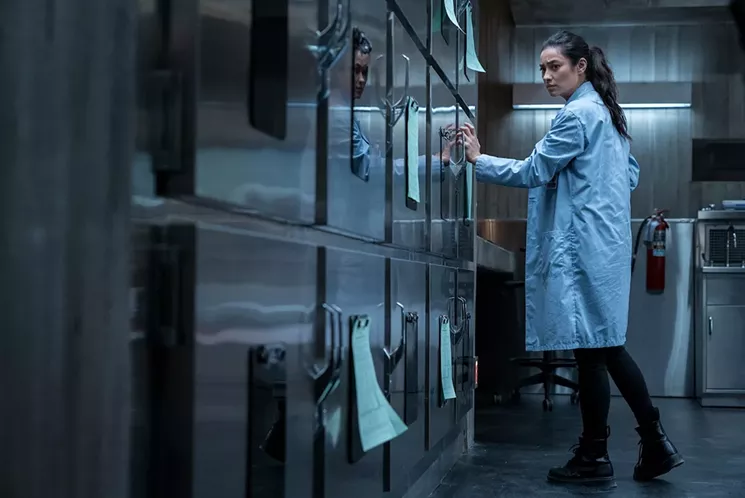A Palme d'Or winner and a star-powered historical flick are among the metro Phoenix movie openings for Friday, November 30. Openings were accurate at the time of publication and are subject to change. For showtimes and more film and television coverage, check out the Phoenix New Times film page.
Becoming Astrid (Unga Astrid) — This warmhearted biography of Astrid Lindgren isn't less about the making of a writer than the formation of the woman who would become the prolific writer of beloved children's books. Director Pernille Fischer Christensen sprinkles Becoming Astrid with moments of young Astrid Ericsson (Alba August) mesmerizing children with her tales, demonstrating her early promise. But Christensen roots Astrid's transformation from impetuous teenager to beloved author in her experience as an unwed mother in conservative 1920s Sweden. Christensen and co-screenwriter Kim Fupz Aakeson use a typical extended flashback structure, shifting from 80-year-old Astrid opening mail from young admirers (including a cassette of precocious schoolchildren asking piercing questions) to her unfolding memories. It's punctuated by voiceover of those kids on the tape, revealing how profoundly they connect to the bravery and resilience in her escapist fiction. Astrid's own maturation involves finding a balance between reason and imagination, discipline and rebellion. August demonstrates the character's defiance through physicality: Astrid's hunched posture is an affront to her mother's buttoned-up rigidity, and she displays a heedless disregard for proper form by flailing with abandon on the dance floor. Even after Astrid has traded the childhood braids that would adorn her most famous creation (Pippi Longstocking) for a daring bob, August expresses the character's compressed rage by letting her body collapse like a petulant toddler. Becoming Astrid doesn't document Lindgren's storied career, ending instead when the key elements are in place, including the future husband whose name she would make famous. Christensen portrays Lindgren as a born storyteller, but delves into the vital time in her development when confounding expectation gave way to building her own narrative. Not Rated. (Serena Donadoni)

Academy Award winner Emma Stone plays the impoverished, fallen-from-grace Abigail, the daughter of a one-time nobleman who lost her in a card game, in Yorgos Lanthimos’ The Favourite.
Atsushi Nishijima/Courtesy of Twentieth Century Fox

In Hirokazu Kore-eda's Shoplifters, the heads of a household trying to survive include father Osamu (played by Lily Franky, right) and his wife Nobuyo (Sakura Ando, left), who find a young girl named Yuri (Miyu Sasaki) and decide to keep her.
Courtesy of Magnolia Pictures
Shoplifters (Manbiki kazoku) — Japanese director Hirokazu Kore-eda is fascinated by the forces that shape families — be those families biological, estranged, surrogate or even just symbolic. In Shoplifters, which won the Palme d'Or at this year's Cannes Film Festival, he has found one of his most intriguing subjects to date. Based on a collection of true news items about exactly what the film's title promises, Kore-eda's story centers around a household that at first might appear to be a somewhat ordinary family that has merely fallen on hard times. The father, Osamu (Lily Franky), works as a day laborer, but he and his young son Shota (Kairi J?) still have to pilfer groceries from the supermarket to survive. Ditto Osamu's wife Nobuyo (Sakura Ando), who works at a bar, and her sister Aki (Mayu Matsuoka), who works at a peep show dressing up as a schoolgirl. The whole family works and steals. But gradually, through offhand comments and occasionally surprising actions, the connections between these individuals start to seem a lot less certain. Are Osamu and Shota, who like to bond over their smooth, well-coordinated shoplifting forays, actually father and son? Is there a darker past between Osamu and Nobuyo, who seem so affectionate and tender toward each other? Kore-eda eases us into this loving arrangement on the margins of society and then slowly, subtly undoes every assumption we might have made about these people. Typically big-hearted, he portrays all this with a straight face, refusing to play up irony or criminality. He also avoids saddling his characters with plot and instead presents them as they are: He follows them in their routines, so that his narrative proceeds at the winding pace of life. Rated R. (Ebiri)

Beware of evil corpses: Shay Mitchell plays a mortuary worker with a big problem on her hands in The Possession of Hannah Grace.
Claire Folger
Other openings — a security guard and his sister must get his boss back from the bandits who abducted her in the Chinese crime caper A Cool Fish; a mortuary worker contends with an evil corpse in The Possession of Hannah Grace; and the political biography of former UN Secretary General Kurt Waldheim is examined in the documentary The Waldheim Waltz.













